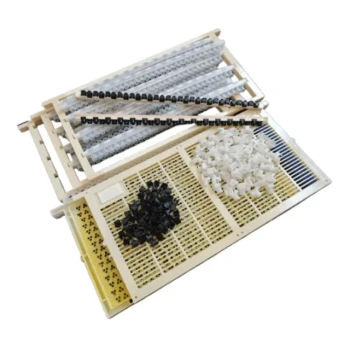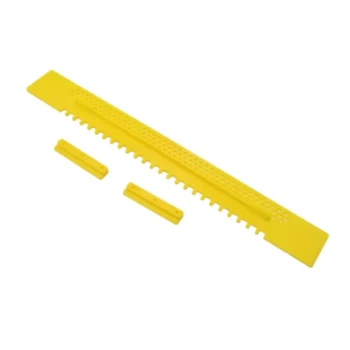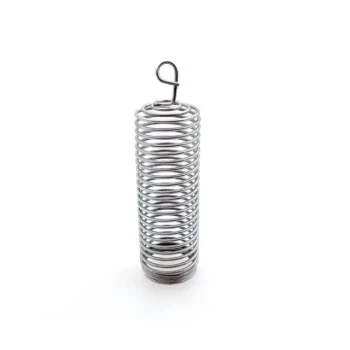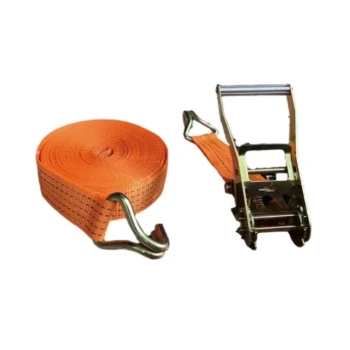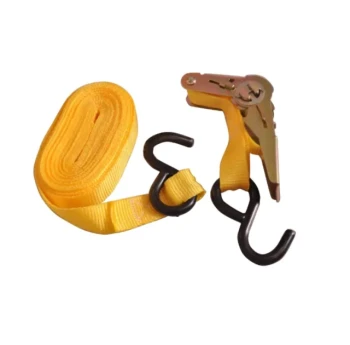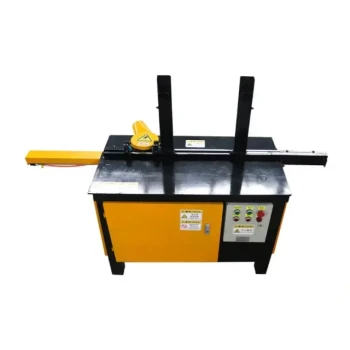When purchasing a nucleus colony, you are buying the foundation of a future hive, so your inspection must be thorough. A high-quality nuc should contain a healthy, laying queen, brood in all stages of development (eggs, larvae, and capped pupae), sufficient food stores of honey and pollen, and frames that are well-covered with a robust population of worker bees. The condition of the seller's equipment and their general beekeeping practices are also critical indicators of quality.
A nucleus colony is not just a box of bees; it is a functioning miniature hive. Your goal is to verify that all components of a healthy colony—a productive queen, a growing workforce, and adequate resources—are present and working together before you invest your time and money.
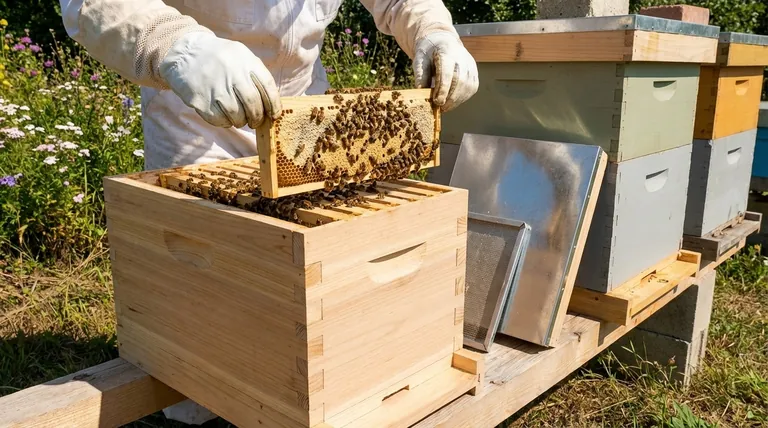
Deconstructing the Ideal Nucleus Colony
A nuc, by definition, is a small, established colony. Each component you inspect tells a story about its current health and future potential.
The Queen is the Engine
The entire colony revolves around a single queen. Her health and productivity dictate the hive's ability to grow.
You must confirm the presence of a proven, laying queen. While seeing the queen herself is ideal, the most important evidence is seeing her work: freshly laid eggs. These look like tiny grains of rice, one at the bottom of each cell.
A healthy queen lays in a tight, consolidated pattern. Large, patchy areas of empty cells within the brood nest can be a sign of a failing queen or disease.
Brood: The Sign of a Healthy Future
The brood is the next generation of bees. A healthy colony needs a continuous cycle of new bees emerging.
Look for brood in all stages of development. This includes eggs, C-shaped larvae of varying sizes, and capped pupae. This "wall-to-wall" brood indicates the queen has been laying consistently for at least three weeks, and the colony has a stable population structure.
The capped brood should appear uniform and slightly convex. Sunken, perforated, or discolored cappings are a major red flag for disease.
Bee Population: The Workforce
A nuc needs enough bees to perform all necessary tasks from the moment you install it.
The frames, especially the brood frames, should be densely covered with worker bees. A sparse population will struggle to maintain brood temperature, defend the hive, and forage for resources, severely slowing down development.
These bees should appear calm on the comb. Excessively aggressive or frantic behavior can indicate a problem with the colony.
Food Stores: Fuel for Growth
A new colony cannot immediately support itself. It relies on the reserves it comes with.
Ensure the nuc contains at least one frame with significant honey and pollen stores. Honey provides energy, while pollen provides the protein necessary to feed the developing brood. A nuc without adequate food is a colony on the verge of starvation.
Understanding the Red Flags
Knowing what to look for is as important as knowing what to avoid. A cheap nuc is no bargain if it's destined to fail or infect your other hives.
Signs of Disease and Pests
Your top priority is to avoid bringing problems into your apiary. Perform a quick but deliberate health check.
Look for signs of chalkbrood (small, mummified white or black larvae) or sacbrood. Check for deformed wings on adult bees, a common symptom of a high Varroa mite infestation. A high pest load will cripple a new colony before it can ever thrive.
A Spotty Brood Pattern
A queen should fill the comb with eggs systematically. A "shotgun" pattern with many missed cells suggests the queen is old, poorly mated, or the colony is dealing with a brood disease.
Inadequate Population or Resources
If you pull out a frame and see more foundation than bees, the nuc is too weak. The bees will be unable to care for the brood and the colony will likely dwindle.
Likewise, a nuc with almost no honey or pollen is being sold in a state of emergency. It will require immediate and intensive feeding just to survive.
The Seller and Their Equipment
Pay attention to the seller. A reputable beekeeper will be transparent, answer your questions, and maintain a clean, organized apiary.
Dirty, old, or mismatched equipment can harbor disease spores (like American Foulbrood) for years. Insist on clean boxes and frames that are a standard size to ensure they will fit in your own equipment.
Making the Right Purchase for Your Apiary
A thorough inspection protects your investment and sets you up for success. Base your final decision on your primary beekeeping goals.
- If your primary focus is rapid growth and honey production: Prioritize a nuc with at least three full frames of brood, a very dense bee population, and a young, marked queen.
- If your primary focus is learning and minimizing risk: Buy from a trusted local beekeeper who can serve as a mentor and guarantees disease-free, gentle bees suited to your climate.
- If your primary focus is establishing a healthy, sustainable apiary: Never compromise on signs of colony health; it is better to walk away from a questionable nuc than to deal with the consequences later.
A careful and informed nucleus colony selection is the first and most critical step toward a successful and rewarding beekeeping season.
Summary Table:
| Inspection Point | What to Look For | Red Flags to Avoid |
|---|---|---|
| Queen | Proven, laying queen; fresh eggs; tight brood pattern. | Spotty, patchy brood pattern; no eggs present. |
| Brood | All stages (eggs, larvae, capped pupae); uniform, convex cappings. | Sunken, discolored cappings; signs of chalkbrood or sacbrood. |
| Bee Population | Frames densely covered with calm worker bees. | Sparse population; aggressive or frantic behavior. |
| Food Stores | At least one full frame of honey and pollen. | Minimal or no honey/pollen reserves. |
| Seller & Equipment | Clean, standard-sized equipment; transparent, reputable seller. | Dirty, mismatched boxes; seller unwilling to answer questions. |
Set your apiary up for success with the right equipment.
A healthy nucleus colony is the first step; reliable, high-quality beekeeping supplies are the next. HONESTBEE supplies commercial apiaries and beekeeping equipment distributors with the durable tools needed to support a thriving operation—from nuc boxes and frames to protective gear and hive management tools.
Contact our wholesale experts today to discuss your supply needs and ensure your beekeeping business is built on a solid foundation.
Visual Guide
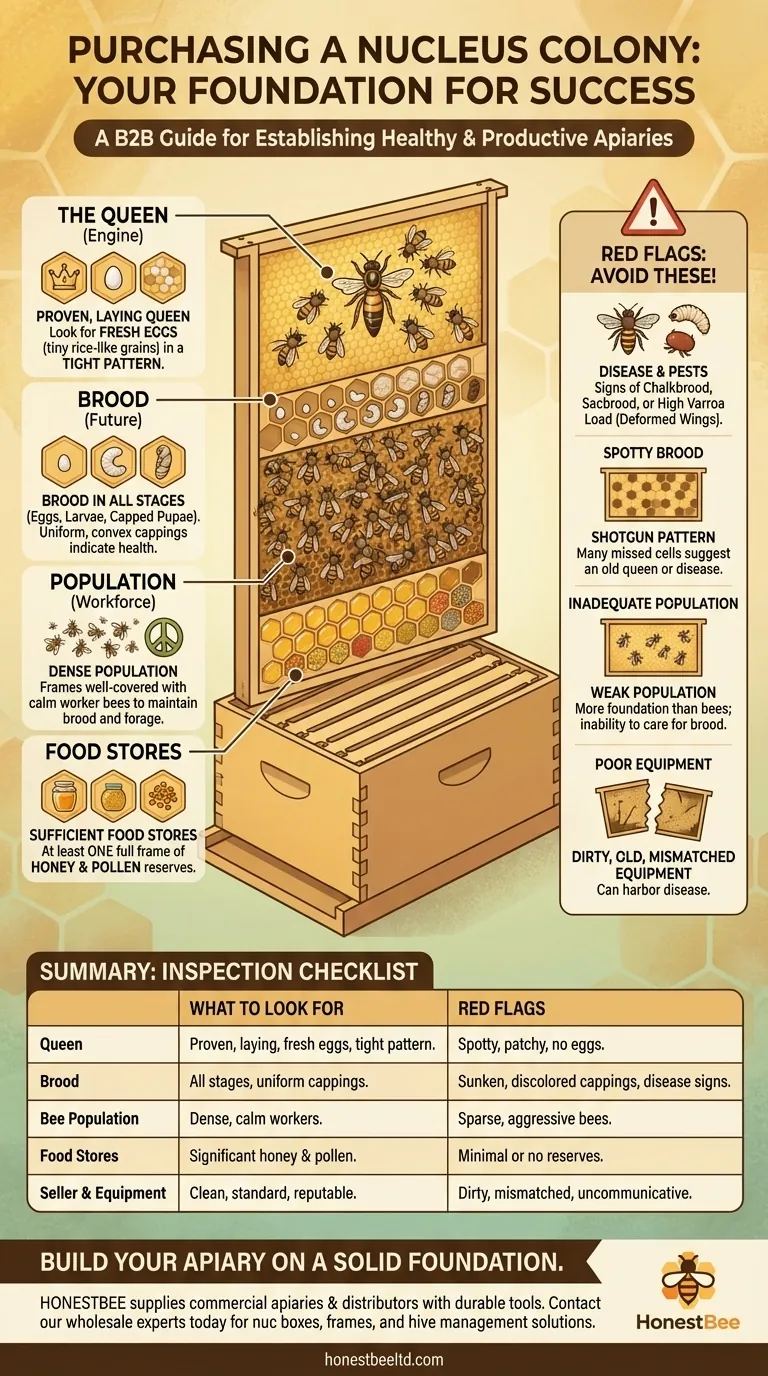
Related Products
- 5 Frame Wooden Nuc Box for Beekeeping
- No Grafting Queen Rearing Kit: System for Royal Jelly Production and Queen Rearing
- Nicot Queen Rearing Kit for Beekeeping and Grafting in Nicot System
- Langstroth Honey Bee Box Hive Boxes for Different Depths
- Jenter Queen Rearing Kit Complete Set for Bee Breeding
People Also Ask
- What frames should be moved into the queenless hive when requeening with a nuc? Ensure a Successful Queen Introduction
- What is a common feature of many 5-frame nuc boxes? The Integrated Feeder for Efficient Colony Growth
- What are the benefits of starting a new bee colony in a nuc box? Boost Colony Success with Efficient Beekeeping
- What is the advantage of overwintering a nucleus? A Strategic Asset for Beekeeping Success
- What feeding feature is common in 5-frame nuc boxes? Explore Top-Feeding Innovation for Colony Growth

